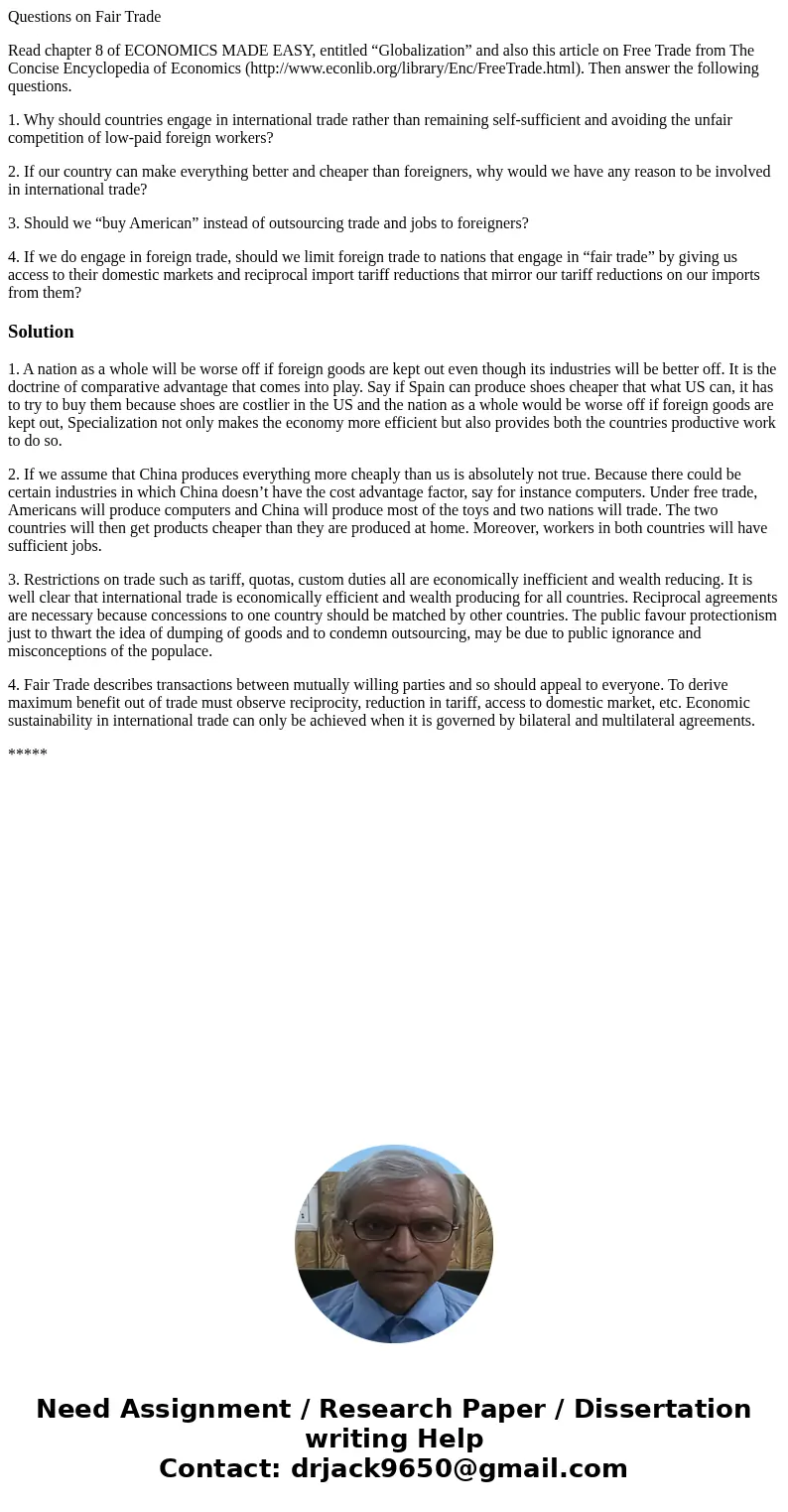Questions on Fair Trade Read chapter 8 of ECONOMICS MADE EAS
Questions on Fair Trade
Read chapter 8 of ECONOMICS MADE EASY, entitled “Globalization” and also this article on Free Trade from The Concise Encyclopedia of Economics (http://www.econlib.org/library/Enc/FreeTrade.html). Then answer the following questions.
1. Why should countries engage in international trade rather than remaining self-sufficient and avoiding the unfair competition of low-paid foreign workers?
2. If our country can make everything better and cheaper than foreigners, why would we have any reason to be involved in international trade?
3. Should we “buy American” instead of outsourcing trade and jobs to foreigners?
4. If we do engage in foreign trade, should we limit foreign trade to nations that engage in “fair trade” by giving us access to their domestic markets and reciprocal import tariff reductions that mirror our tariff reductions on our imports from them?
Solution
1. A nation as a whole will be worse off if foreign goods are kept out even though its industries will be better off. It is the doctrine of comparative advantage that comes into play. Say if Spain can produce shoes cheaper that what US can, it has to try to buy them because shoes are costlier in the US and the nation as a whole would be worse off if foreign goods are kept out, Specialization not only makes the economy more efficient but also provides both the countries productive work to do so.
2. If we assume that China produces everything more cheaply than us is absolutely not true. Because there could be certain industries in which China doesn’t have the cost advantage factor, say for instance computers. Under free trade, Americans will produce computers and China will produce most of the toys and two nations will trade. The two countries will then get products cheaper than they are produced at home. Moreover, workers in both countries will have sufficient jobs.
3. Restrictions on trade such as tariff, quotas, custom duties all are economically inefficient and wealth reducing. It is well clear that international trade is economically efficient and wealth producing for all countries. Reciprocal agreements are necessary because concessions to one country should be matched by other countries. The public favour protectionism just to thwart the idea of dumping of goods and to condemn outsourcing, may be due to public ignorance and misconceptions of the populace.
4. Fair Trade describes transactions between mutually willing parties and so should appeal to everyone. To derive maximum benefit out of trade must observe reciprocity, reduction in tariff, access to domestic market, etc. Economic sustainability in international trade can only be achieved when it is governed by bilateral and multilateral agreements.
*****

 Homework Sourse
Homework Sourse